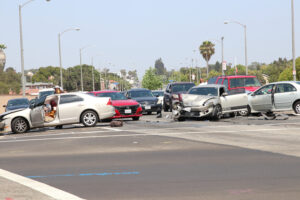In personal injury cases, the strength of your case often comes down to the type of evidence you have. Not all evidence is considered equal in the eyes of a jury. When complex medical, financial, or technical details must be presented to a jury, outside of the scope of knowledge of the average person, an expert witness is normally required. Their testimony can help establish liability, prove the extent of damages, and counter opposing arguments. Without strong expert witnesses, even the most legitimate injury case can crumble under scrutiny.
A study from the American Bar Association found that juries give significant weight to expert testimony, often relying on it to make key decisions in cases involving serious injuries. This makes expert witnesses one of the most powerful tools in a personal injury attorney’s arsenal. However, choosing the right expert, and presenting their testimony effectively, requires experience and legal skill.
At Dan Chapman & Associates, we understand how expert testimony can shape the outcome of an injury case. If you’ve been injured due to someone else’s negligence, having the right legal team on your side can make all the difference. Here’s everything you need to know about how expert witnesses impact personal injury claims.
Types of Expert Witnesses Commonly Utilized in Personal Injury Trials
Not all expert witnesses serve the same function. Depending on the specifics of a case, different professionals may be called upon to provide needed testimony. Here are some of the most common types:
1. Medical Experts
These medical professionals—such as doctors or surgeons — provide testimony on the nature, cause and extent of injuries. They can explain:
- The severity of injuries
- The cause of the injuries
- The required treatment and potential recovery timeline
- Whether the injuries are permanent or disabling
- How the injuries impact the victim’s ability to work and carry out daily tasks
For example, in a spinal cord injury case, a neurologist may testify about how nerve damage affects mobility and quality of life.
2. Accident Reconstruction Specialists
When liability is disputed, accident reconstruction experts analyze crash data, crash scene evidence (like skid marks), vehicle damage, and other evidence to explain how an accident occurred and maybe even where on the roadway it occurred. Their testimony is particularly useful in car accident cases where insurance companies attempt to shift blame onto the injured party.
3. Economic Experts
Personal injuries often result in lost wages and long-term financial hardship. Expert economists are used to testify about financial damages. These include:
- Current and future lost income
- Medical expenses expected to be incurred over a lifetime
- The financial impact of permanent disabilities
This type of expert testimony is crucial for maximizing compensation, particularly in catastrophic injury cases where future earnings are significantly affected.
4. Engineering and Safety Experts
In product liability and premises liability cases, engineers and safety experts can explain how defective products, or unsafe conditions, contributed to an injury happening. For example, a structural engineer may testify in a slip-and-fall case about building code violations.
5. Mental Health Professionals
Psychologists and psychiatrists can provide testimony about the emotional and psychological toll of an injury, such as PTSD, anxiety, or depression.
Each of these experts provides unique insights that can strengthen a personal injury claim.
How Juries Handle Competing Expert Testimony
Personal injury cases often involve dueling experts—one hired by the plaintiff and another by the defense. When two experts provide conflicting testimony, how does a jury decide whom to believe?
Several factors can influence a jury’s perception about an expert and the accuracy and truthfulness of their testimony:
- Clarity of Explanation: Juries respond better to experts who can break down complex topics into easy-to-understand language.
- Credibility and Experience: An expert’s credentials, reputation, and courtroom demeanor significantly affect their persuasiveness.
- Consistency with Other Evidence: If one expert’s testimony aligns more closely with physical evidence and eye witness accounts, it will carry more weight.
- Cross-Examination Performance: Defense attorneys often attempt to undermine an expert’s credibility. An expert who remains calm, composed and confident under strong questioning during cross examination is more likely to be persuasive.
An experienced personal injury lawyer knows how to prepare expert witnesses to withstand aggressive cross-examinations and communicate effectively with jurors.
The Importance of an Experienced Attorney in Expert Battles
Simply having an expert witness isn’t enough. The way the expert’s testimony is presented to the jury can make or break a case. A skilled attorney will:
- Vet Experts Thoroughly: Not all experts are credible. Some are hired guns and earn hundreds of thousands of dollars a year hopping from court to court. A strong attorney ensures that an expert’s credentials, experience, and past testimony history are impeccable.
- Prepare Experts for Court: Even the most knowledgeable professionals may struggle to communicate effectively in a legal setting. Attorneys work with experts to ensure their testimony is clear and persuasive.
- Challenge Opposing Experts: Defense attorneys often present their own experts to cast doubt on a claim. A strong lawyer will know how to cross-examine and expose weaknesses in their testimony.
At Dan Chapman & Associates, we have extensive experience handling expert testimony and know how to leverage it effectively to maximize compensation for our clients.
Qualifications and Selection Criteria for Expert Witnesses
Not just anyone can serve as an expert witness. Courts require that an expert have the necessary education, training, and experience to be considered a credible source of information.
Key qualifications include:
- Advanced Degrees and Certifications in a relevant field
- Years of Professional Experience
- A History of Credible Testimony in previous court cases
- Peer Recognition and Published Work in their industry
Additionally, courts may exclude experts if they appear biased or lack adequate scientific backing for their opinions. This is why it’s crucial to work with an attorney who understands how to vet and select the right expert for your case.
Conclusion: Why Expert Testimony Matters
Expert witnesses are often the deciding factor in personal injury trials. Their ability to explain complex issues, establish fault, and quantify damages can make a substantial difference in the compensation an injured person receives.At Dan Chapman & Associates, we understand the critical role of expert testimony in securing justice for our clients. If you or a loved one has been injured due to someone else’s negligence, don’t navigate the legal process alone. Contact us today for a free consultation and let our experienced team fight for the compensation you deserve.






